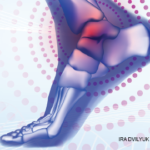At ACR Convergence 2021, two doctors provided an overview of inflammatory eye disease and the overlap with systemic rheumatic illnesses.


At ACR Convergence 2021, two doctors provided an overview of inflammatory eye disease and the overlap with systemic rheumatic illnesses.

The Basic and Clinical Research Conference session on Rheumatology Complications of Emerging Viral Infections/SARS-CoV-2 presented findings from numerous studies that help explain some of the idiosyncrasies of COVID-19.

Two sessions at ACR Convergence 2021 addressed a holistic approach to taking care of older patients with RA & other rheumatic diseases.

Cyltezo (adalimumab-adbm) may be interchanged for Humira (adalimumab) for all indications, according to an October decison by the FDA. The FDA has also approved a new combination of celecoxib and tramadol for pain management.

Iryna Nemesh, MD, Saleema Kherani, MD MPH, Shikha Singla, MD, & William Wirostko, MD |
Syphilis is a chronic sexually transmitted disease (STD) caused by the spirochete Treponema pallidum. The clinical manifestations of syphilis are divided into four stages: 1) the primary stage, characterized by painless mucosal or cutaneous chancre at the site of infection that resolves spontaneously; 2) the secondary stage in which a generalized maculopapular rash and condyloma…

Ashraf Raslan, MD, Dorian Infantino, MD, Roman Zuckerman, DO, & Daniel Berlin, MD |
Giant cell arteritis (GCA) is a granulomatous vasculitis of large- and medium-sized arteries, usually affecting the cranial branches of the aortic arch. It is the most common vasculitis, with the highest risk factor being age. Accurate diagnosis and prompt initiation of therapy are of great importance to prevent serious complications, with the most feared being…

M. Cameron Hay, PhD, & Kerby Hyland |
It was Christmas Eve, 1996. The pain had become excruciating—it had to be for Kerby to opt to go to the hospital on Christmas Eve because Kerby’s pain tolerance was high. At that point, he had been living with what had ultimately been diagnosed as psoriatic arthritis for about 30 years. That Christmas Eve, the…

Kade L. Paterson, PhD, BPod, BAppSci(Hons), Marian T. Hannan, DSc, MPH, Lara Chapman, MSc, BPod, Edward Roddy, DM, FRCP, Hylton B. Menz, PhD, BPod, & Catherine Bowen, PhD, BPod |
The high prevalence and significant burden of osteoarthritis (OA) are well known. But it’s becoming apparent that OA research efforts don’t necessarily match disease prevalence or disability. The International Foot and Ankle Osteoarthritis Consortium (IFOAC) is an international organization of volunteers that seeks to highlight a major and often overlooked problem in OA research—foot and…

Michael B. Brenner, MD, addresses exciting advances in basic science in rheumatology, including insights into inflammation in osteoarthritis, the adult-onset autoinflammatory syndrome VEXAS and more.

In early October, the FDA approved avacopan to treat anti-neutrophil cytoplasmic antibody associated vasculitis. Here are insights into the treatment’s risks and considerations.